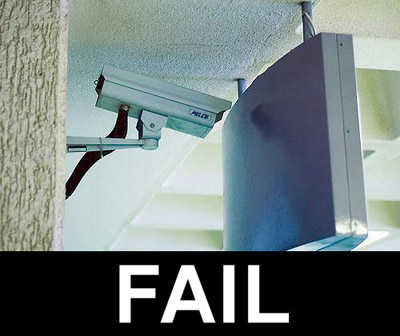Author’s Note: After I sent this, I promptly received a call from an intelligent and competent woman who advised me that their ATMs had been told not to wish me a happy birthday anymore. I could not have been happier with how my concerns were addressed.
To Whom It May Concern,
I made an ATM withdrawal yesterday, as I often do. Before I describe what happened, let me say that your ATMs are the best I have used. The ability to select my most common transaction immediately upon keying my PIN is smart user interface design and the machines’ check scanning feature is slick. Good job.
Yesterday while my withdrawal was being processed, the ATM wished me a happy birthday. My reaction, and the reaction from everyone with whom I’ve shared this was, “Well, that’s creepy.”
I do not find it unreasonable that you know my date of birth. I have multiple accounts with you, including my mortgage. I also get that asking for my date of birth is a useful part of verifying my identity when I call.
I have two problems with your ATM wishing me a happy birthday:
1) Again, creepy. It had absolutely nothing to do with the transaction at hand so it felt uncomfortably out of place. Some things just don’t go together, like flying a kite at night or eating a meatball sandwich on the toilet. If the intent behind this was to create a little warmth or goodwill toward your company then it had the opposite effect. You want to generate some goodwill? Have your machine wish me a happy birthday and then slip me an extra 20 bucks.
2) I immediately thought, “What else are they doing with my data? I wonder if they are using it as indiscriminately as they are demonstrating now.” You proved the maxim “Non-existent data cannot be abused. Data that exists will eventually be abused or used for something other than the originally stated purpose for its collection.”
With data that’s just lying around, sometimes the question isn’t “What can I do to leverage this further?” but instead “Do I have the sense not to?”
Ask the bereaved who gets a supermarket mailer addressed to the departed that says, “We haven’t seen you in a while. We’d like you back as a customer.”
Ask the woman who, as a result of her purchasing prenatal vitamins, later receives direct mail offering congratulations and coupons for baby formula…after the miscarriage.
I am interested to know if you had the forethought to create a means for the unamused to opt out of receiving these sorts of messages or if I must simply resign myself to cursing you annually.
Best regards,
MrPikes, Crank
